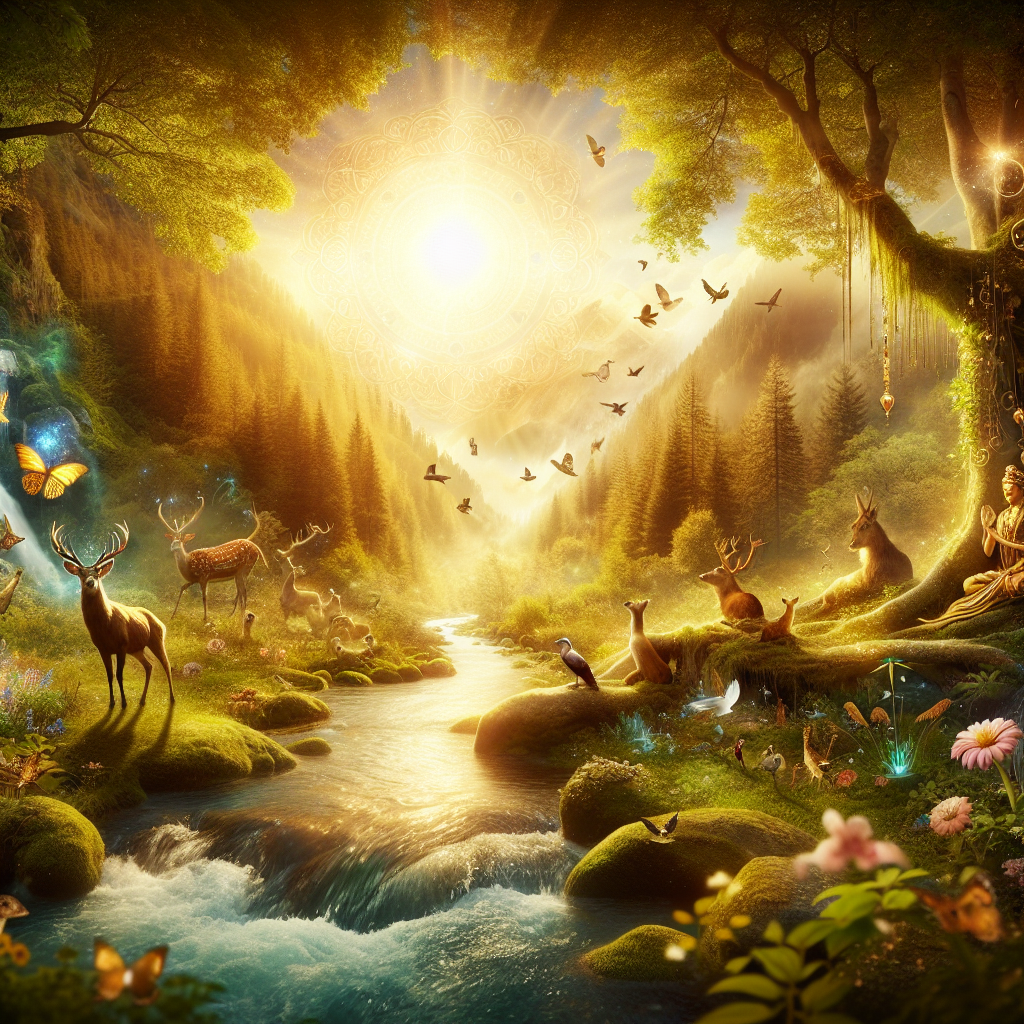Spiritual Devotional about Spiritual Ecology
Spiritual Ecology: Connecting with God through Earth’s Beauty
Beloved children of God, today let’s delve into a marvellously profound topic – Spiritual ecology. Ecology, in its simplest term, refers to the study of the relationship and interaction between organisms and their environment. So, what can be spiritual about ecology? As Christians, we know that all creations are a reflection of our Creator’s wisdom and glory. Hence, understanding and loving the environment essentially is about respecting and acknowledging the beauty and grace of our Heavenly Father.
God’s Reflection on Earth
Remember this powerful verse from the Book of Genesis? “So God created mankind in his own image, in the image of God he created them; male and female he created them.” (Genesis 1:27). When we’re examining the notion of Spiritual ecology, this verse can be interpreted as a firm reminder of our relationship with the environment. We are intimates of Earth; each detail, small or large, reflects facets of our Creator’s grandeur.
Our Role, Our Responsibility
Another insightful biblical verse says, “The Lord God took the man and put him in the Garden of Eden to work it and take care of it.” (Genesis 2:15). This emphasizes that our world is not merely a gift but a responsibility. Our season on this splendid planet is limited, but the time we spend here can indeed make a huge difference.
Our role as caretakers calls us not only to reap benefits from mother nature but also to learn invaluable lessons from her. Our charge is to manage, preserve, and ensure each generation can witness and appreciate the splendid beauty of our precious planet.
The Lesson of Love
What is God if not love? 1 John 4:16 reminds us that “God is love, and whoever abides in love abides in God, and God abides in him.” When you love someone, you respect them, care for them, and this applies to our Earth too. Spiritual ecology is about learning to love creation as God loves us, cherishing and nurturing the Earth, ensuring its beauty and bounties are a blessing to future generations to enjoy.
In Closing
Beloved, as we explore and connect more with the concept of Spiritual ecology, we must realize the Creator’s love echos through His creation. We must honor, preserve, and cherish His love every moment. May our actions reflect our gratitude for the bountiful blessings He has bestowed upon us and inspire others to do the same.
Let’s remember Psalm 24:1: ‘The earth is the Lord’s, and everything in it, the world, and all who live in it.’ Continue to nurture, respect, and uphold the sanctity of nature, just as we would respect and love our Creator, our Heavenly Father.
God bless.
Explore and dig up answers yourself with our BGodInspired Bible Tools! Be careful – each interaction is like a new treasure hunt… you can get lost for hours 🙂
Q&A about Spiritual Ecology
Q: What is spiritual ecology?
A: Spiritual ecology refers to the study and practice combining spiritual awareness with environmental activism and stewardhip of the Earth. It is an emerging field that integrates ecology, spirituality, philosophy, and religion with the objective of protecting the planet and its diverse life forms.
Q: How is spiritual ecology different from traditional environmental conservation?
A: While the end goal of sustainability and protection of the environment is the same, spiritual ecology differentiates itself by blending ecological principles with spiritual beliefs and practices. It emphasizes the spiritual connection humans have with Earth, often citing this as a key reason behind environmental conservation.
Q: What are some practices within spiritual ecology?
A: Practices can vary greatly, and involve prayer, meditation, ritual, and other spiritual practices focused on establishing or deepening one’s connection to nature. Other practices may involve participating in environmentally-friendly behaviors, such as recycling, composting, and responsible consumption.
Q: How does spiritual ecology view the human connection to nature?
A: Spiritual ecology views humans as an integral and inseparable part of the natural world, rather than separate or superior to it. It emphasizes the need for humans to live in harmony with nature and to treat it with respect.
Q: How does spiritual ecology have relevance in modern times?
A: Spiritual ecology seeks to address the increasing disconnection between humans and nature in the modern world. It argues that by rekindling our spiritual relationships with nature, we can foster a truly sustainable attitude towards the environment. In essence, it offers a holistic approach to environmental issues.
Q: Can anyone practice spiritual ecology?
A: Absolutely. You don’t necessarily need to follow a specific religion or spiritual practice to embrace spiritual ecology. Many practitioners are simply individuals who appreciate the environment and feel a deep respect and spiritual connection to the natural world.
Q: How can spiritual ecology help to combat climate change?
A: By promoting a deeper respect and spiritual connection to nature, spiritual ecology can inspire individuals to take more active roles in environmental conservation. This might involve adopting sustainable living habits, taking part in environmental activism, or working towards policies that favor renewable resources and limit carbon emissions.


